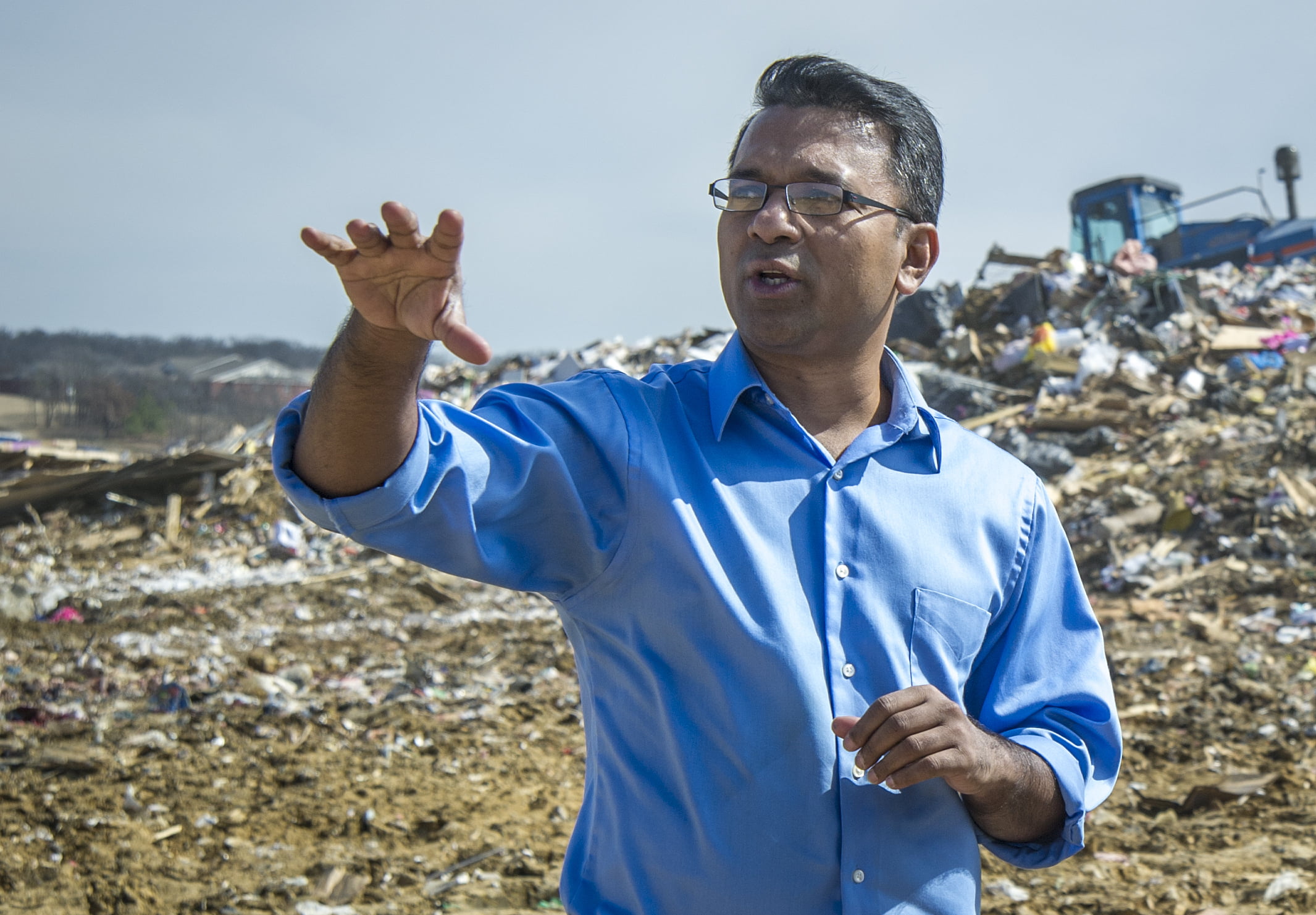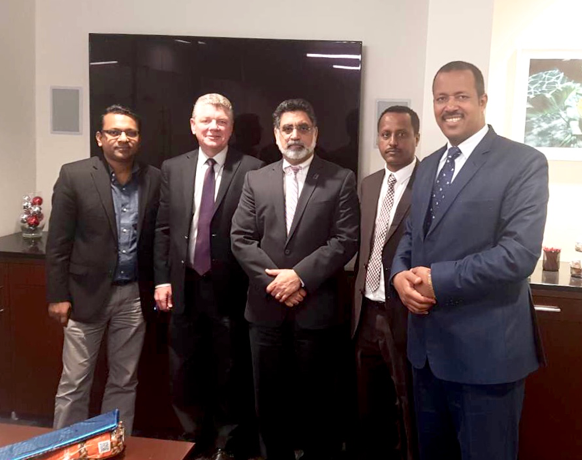Grant to help city of Addis Ababa, Ethiopia, with sustainable urban development
One hundred thirteen people died in March 2017 in Addis Ababa after a landfill slid on homes crushing the residents underneath the debris.
Officials in the Ethiopian capital called UTA’s Sahadat Hossain because he is a landfill management expert, who has researched and perfected the efficient and safe operation of landfills.

Hossain is the director of the University of Texas at Arlington’s Solid Waste Institute for Sustainability, or SWIS.
“I was the only international expert allowed to the landfill after its collapse,” said Hossain, who also is a UTA civil and environmental engineer. “I had been working with the city of Addis Ababa since 2015 but after the national tragedy in 2017, something had to be done. They were out of time. It wasn’t a question of when. It was a question of how.”
Now, the city of Addis Ababa, Ethiopia, has signed a five-year, $4 million agreement with Hossain to solve the one major issue for their country – growing demand for sustainable urban development.
As part of sustainable urban development, solving waste management issues due to the exponential rise of city’s population is a critical component for future growth of Addis Ababa.
The agreement is a collaboration between The University of Texas at Arlington and Kotebe Metropolitan University and the city of Addis Ababa. Through the collaboration, UTA’s SWIS will help and promote Addis Ababa’s waste management facility to become a Center of Excellence. As part of the agreement SWIS will hire and educate two post-doctorate researchers and five doctoral students each of those five years.
Hossain will work with the Addis Ababa city officials and KMU to enroll the post-docs and doctoral students, and identify the city’s need to start research projects that will have a lasting impact on their home country of Ethiopia.
“We can concentrate on landfill management projects that can immediately benefit and help Ethiopia,” said Hossain, who added that Addis Ababa currently has 3.5 million residents but should have close to 10 million in the next decade. “They need action now.”

SWIS will play a key role in educating and directing landfill research for that country. The institute combines science, engineering and social science expertise in developing new methodologies and solutions in order to explore international paths to sustainable waste management. SWIS’ goal is to work for a better future by developing sustainable solid waste management that incorporates the economy, people and environment, which will be beneficial to all cities in Texas, the country and internationally. SWIS conducts a winter training/education conference which has drawn participants from more than 60 countries.
“This is the global outreach of SWIS and UTA,” Hossain said. “And the project with Ethiopia doesn’t only include solid waste management. It also includes street engineering, traffic management, urban planning, city management and other major topics.”
That’s why Hossain is envisioning collaboration within the Civil Engineering Department and other departments within UTA.
Dr. Araya Asfaw, former director of Horn of Africa Regional Environmental Center and founder/managing partner of the sustainability advisory group, said he is excited about the collaboration with UTA.
“Our people will be learning cutting-edge technology in maintaining and managing landfills, and sustainable waste management system,” Araya said. “We will benefit immediately from what they learn here at UTA.”
Araya is the city of Addis Ababa’s consultant for the project.
Ali Abolmaali, chair of the Civil Engineering Department, said Dr. Hossain’s work will have a lasting impact on Ethiopian residents.
“What he is doing with the country today could influence what happens in that country for decades to come, It has global impact,” Abolmaali said. “You’ll see changes in those residents’ lives well beyond the physical infrastructure we’ll train for in the classroom with the doctoral students and post-doc researchers.”
Duane Dimos, UTA’s vice president for research, said the work done now will save lives in the long run.
“We cannot let what happened in 2017, happen anymore,” Dimos said. “This university caters to the needs of a major metropolitan area in North Texas. That expertise and learned experiences need to be shared with the world and Dr. Hossain has done that and is continuing to do that in his Solid Waste Institute for Sustainability.”
SWIS is a classroom for solid waste management and landfill mining. Hossain has received grants from various cities and state agencies that installs sensors in landfills to tell the operator how much water to apply so that decomposition can create gas used to power nearby homes.
Hossain also has a project with the Texas Department of Transportation that uses pins made of recycled plastic to spike into failed highway slopes, which in turn makes those slopes stronger.
UTA’s SWIS is an Organized Research Center of Excellence. Hossain has organized the winter school for the last three years in collaboration with the International Solid Waste Association. The objective of the ISWA-SWIS winter school is to provide advanced knowledge in the field of waste management to an international audience of existing and emerging solid waste experts. Participants from more than 60 counties joined the winter school last three years.